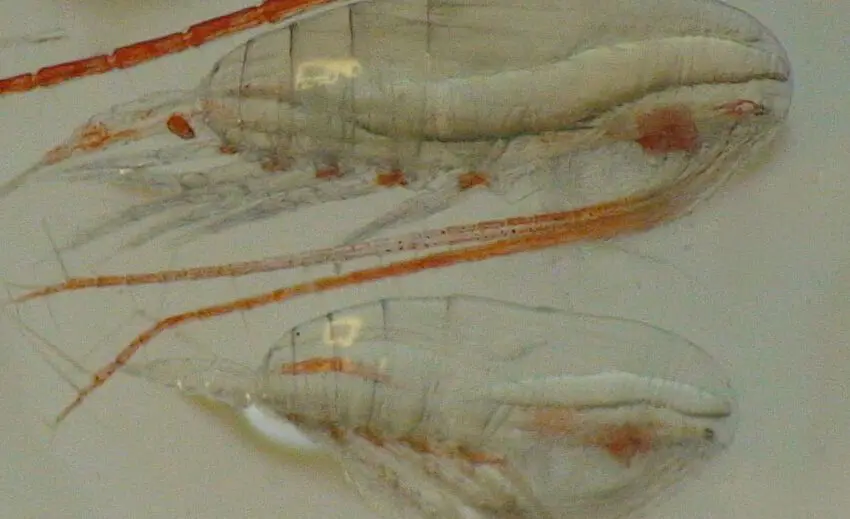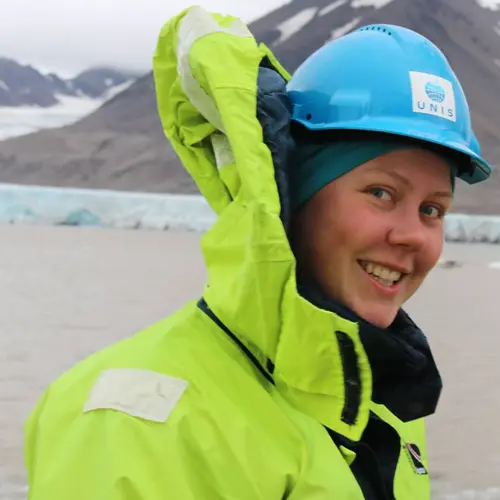Fate of copepods in a warming Arctic dependent on the algae season

Calanus glacialis (top) and calanus finmarchicus.
Top image: The Arctic Calanus glacialis (top) and the Atlantic Calanus finmarchicus. Photo: Janne Søreide/UNIS.
The duration of the productive season is crucial for the Arctic copepod Calanus glacialis to have higher success than its Atlantic sibling C. finmarchicus in a changing Arctic, concludes PhD candidate Maja Hatlebakk in her doctoral thesis. Hatlebakk will defend her thesis on Wednesday 20 November at UNIS.
14 November 2019
Press release from the University Centre in Svalbard (UNIS) and Nord University
Through regular sampling in Isfjorden, Svalbard, Maja Hatlebakk has compared the reproduction strategy of the two species in relation to when food is available and how they regulate their metabolic activity level. She has shown that they are largely similar, but some distinct differences are significant for their different success rates in the Arctic. It is crucial for the success of the Calanus glacialis that they grow large enough to store sufficient amounts of fat, so that they can survive the winter and start reproduction prior to the onset of the algae bloom. This gives the offspring sufficient time to grow large enough to survive the winter, before the productive season is over. The Atlantic C. finmarchicus has too little fat reserves to do this, and depend on the productive season becoming longer if it is to establish itself in the Arctic.
Copepods are an important link between algae and larger animals in the ocean. Through the work with the thesis, Hatlebakk has compared the Arctic C. glacialis and the Atlantic C. finmarchicus, which is transported into the Arctic by the warm ocean currents, to investigate how their respective adaptations to the seasonal variations in light and food affect their success in a changing Arctic.
Dissertation
Maja Hatlebakk will defend her doctoral thesis entitled “New insights into Calanus glacialis and C. finmarchicus distributions, life histories and physiology in high-latitude seas”, on 20 November at 12:15. She will give a trial lecture at 10:15 the same day entitled “The role of marine copepods in global biogeochemical cycles”. Both lectures will take place in Lassegrotta at UNIS.
The committee consists of Dr Eva Friis Möller, Aarhus University, Denmark (1. opponent); Dr Daniel Justin Major, National Oceanography Centre, United Kingdom (2. opponent), and Associate professor Torstein Kristensen, Nord University (committee leader).
The thesis work has been supervised by Galice Hoarau (Nord University); Janne Søreide (UNIS); Barbara Niehoff and Martin Gräve (Alfred Wegener Institut, Germany).

About the candidate
Maja Hatlebakk (29) is from Elnesvågen, Norway and completed her masters in marine biology at NTNU in Trondheim, Norway.
During her master’s she conducted field work and experiments at the University Centre in Svalbard (UNIS), where she later also got employment for her PhD.